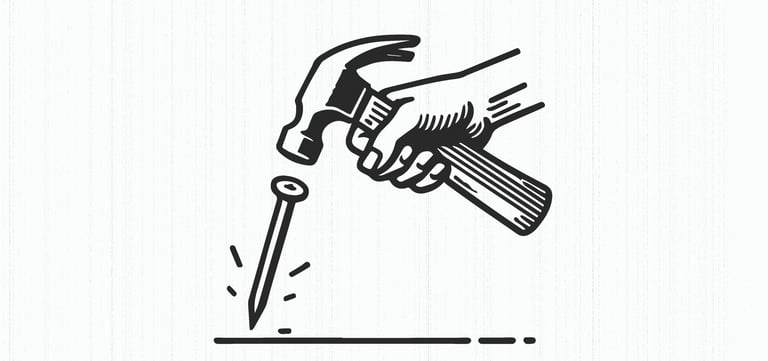Misconception: DIY Branding Can Last Forever
The Realities of Scaling and Professional Needs
Misconception: DIY Branding Can Last Forever
Many startups embrace DIY branding due to its initial cost-effectiveness and simplicity. This approach can be appealing, especially when resources are limited and needs are straightforward. However, as a business evolves and market demands increase, the cracks in a DIY branding strategy begin to show.
The Initial Appeal of DIY Branding
DIY branding is attractive to many entrepreneurs. It offers a sense of control and immediacy. In the early stages, when the focus is on product development and market entry, this approach seems sufficient. Entrepreneurs can use basic tools to create logos and promotional materials, and manage their initial marketing efforts.
Challenges Arise as the Business Scales
Professionalism Lacks: DIY branding often lacks the polished finish that professional designers bring to the table. As the business grows and seeks to enter more competitive markets, the amateurish feel of DIY branding can hinder its ability to attract premium clients and partners.
Consistency Issues: As the business expands, ensuring a consistent brand image across various platforms and physical locations becomes challenging. DIY efforts often result in a fragmented brand identity that confuses customers and dilutes brand value.
Strategic Shortcomings: Beyond aesthetics, professional branding involves strategic thinking about the brand’s market positioning, competitive analysis, and customer psychology. DIY branding typically misses these aspects, limiting the brand’s potential to evolve strategically with the market.
Transitioning to Professional Branding
The transition from DIY to professional branding is not just necessary; it’s inevitable for businesses aiming for significant growth. Here’s why professional branding becomes crucial:
Expertise and Insight: Branding experts bring a depth of knowledge that is hard to replicate on your own. They can provide insights into industry trends, consumer behavior, and competitive landscapes that are invaluable for crafting an effective brand strategy.
Efficiency and Focus: By delegating branding to professionals, business owners can focus more on core business areas. This division of labor is more efficient and allows experts to handle what they do best.
Adaptability and Scalability: Professional branding is designed to adapt and scale. Whether it’s entering new markets or expanding product lines, a professionally crafted brand can flexibly accommodate growth and change.
Long-Term Implications of Professional Branding
Investing in professional branding is not just about improving aesthetics; it's about setting up a robust foundation for future growth. A well-thought-out brand strategy aids in communication consistency, builds customer loyalty, and enhances overall market presence.
Building Customer Trust: A consistent and professionally managed brand builds trust. Customers are more likely to engage with a brand that appears well-managed and coherent across all touchpoints.
Supporting Business Strategy: A good branding strategy supports overall business objectives. It aligns with business values and goals, helping to convey a company’s mission and vision effectively to its target audience.
Conclusion
While DIY branding might seem sufficient during a company's infancy, its limitations become apparent as the business grows. For sustainable growth and competitive advantage, transitioning to professional branding is essential. It ensures that the brand remains adaptable, consistent, and strategically aligned with the business's evolving needs.


We simplify brand building for those starting, growing, or changing direction.
You will receive all our key articles straight to your email, once a week.
